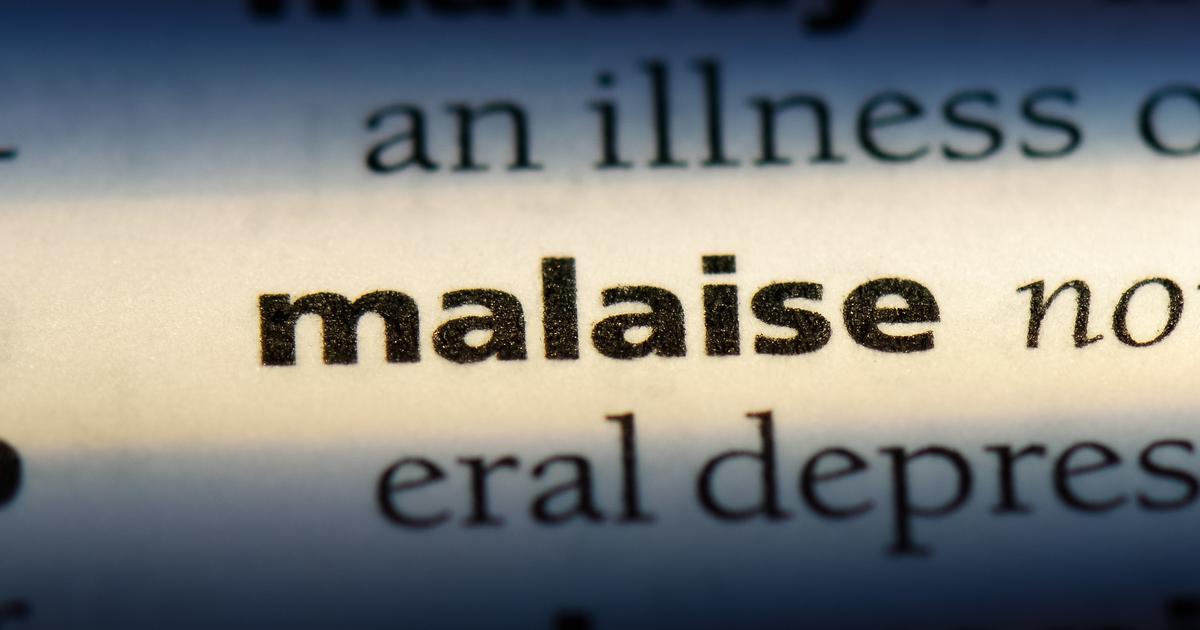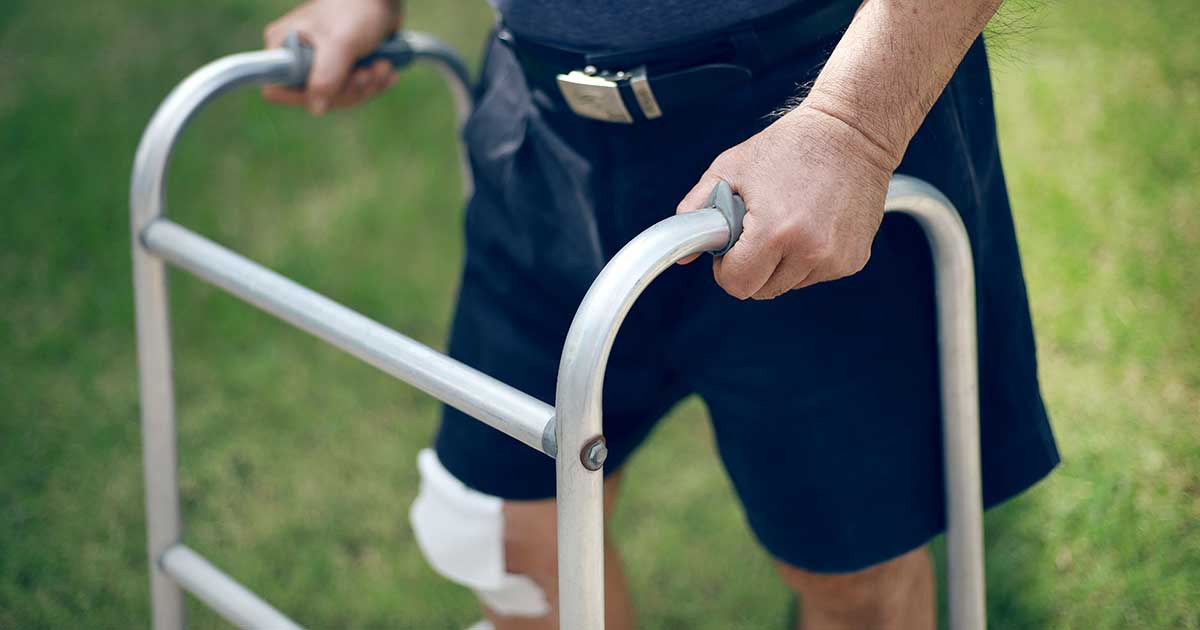Early Signs Of Rheumatoid Arthritis
For people dealing with rheumatoid arthritis, knowing which treatments to use and how to find them can alleviate most of the pain and discomfort.Rheumatoid arthritis, an autoimmune condition, occurs when an individual's immune system mistakenly attacks the joints, resulting in inflammation and thickens the lining of the joints, which is what triggers pain and swelling. While individuals having a family member with rheumatoid arthritis can increase their risk of developing the condition as well, the majority of individuals with this condition have no family history of it. Left untreated, rheumatoid arthritis can result in cartilage damage and loss, loss of mobility in the joints, as well as joint deformity, among other effects. Feeling these limitations in life is very disheartening, but noting the signs early on will allow individuals to act quickly and start working towards finding relief.
Check out these early signs of rheumatoid arthritis.
Numbness In The Hands

If individuals feel random numbness in their hands or any type of tingling sensation, it may be a sign of rheumatoid arthritis. As the affected joints swell, they interfere with the amount of space the nerves need to function appropriately, thus causing these feelings to occur. Numbness in the hands with rheumatoid arthritis typically gets worse at night. In fact, when this kind of pain worsens at night, it is a sure sign something is going wrong with an individual's body, even if it is not rheumatoid arthritis. Patients concerned about numbness in their hands should ask their doctor if they believe it could be rheumatoid arthritis, particularly if other symptoms are also present.
Continue reading to learn more about the major indicators of rheumatoid arthritis now.
Stiffness In The Joints

If individuals find themselves struggling to move, maintain a strong grip, and perform other activities, it could mean their joints are stiff and they may, because of this, be suffering from a condition like rheumatoid arthritis. Overall lack of mobility can make a huge impact on an individual's daily routine, so it is important for patients to get checked out as soon as they can if they notice their joints are feeling stiff. Not only can doctors help determine if rheumatoid arthritis is the cause, but they can also offer treatments to help mitigate the severity of joint stiffness not only long term, but also short term while waiting for more permanent solutions. This will allow patients to live as independently as possible.
Get more details on some of the most significant warning signs linked to rheumatoid arthritis now.
Fatigue

Although it may come as a surprise to many individuals, unusual fatigue can be an early indicator of rheumatoid arthritis. In fact, it is important to note unusual fatigue is often one of the very first warning signs something is not right with an individual's body. thus, it is a good idea for individuals to book an appointment with their doctor if they are experiencing unusual fatigue that is interfering with their regular daily activities.
The fatigue associated with rheumatoid arthritis is the kind rest does not seem to cure or even temporarily alleviate in some cases. According to research, approximately ninety percent of individuals who suffer from rheumatoid arthritis report fatigue as one of their primary symptoms. many also claim fatigue is second only to pain in their joints as the toughest part of living with rheumatoid arthritis.
Read more about the different symptoms often associated with rheumatoid arthritis now.
Joint Pain

Individuals feeling a little stiff in the morning is one thing, particularly if they slept in an uncomfortable position or on a hard surface (such as on the ground in a tent), but if they also experience pain and tenderness around their joints, particularly frequently, it's time for them to contact a doctor. There is no need to live with these issues when treatments are readily available. Usually, the smaller joints, like fingers, are affected by a condition like rheumatoid arthritis first, but it can eventually cause trouble in an individual's knees, shoulders, and feet. This could cause life-altering issues if not treated, leaving affected individuals without the ability to move around independently.
Learn more about the serious early warning signs linked with the development of rheumatoid arthritis now.
Dryness Of Skin

When dry skin is paired with other symptoms on the list, it is likely the affected individual is suffering from rheumatoid arthritis. The inflammation that occurs in the joints with this condition blocks up the glands that typically release moisture throughout the body, so affected individuals often find themselves with dry eyes, throat, mouth, and skin. The occurrence of this varies from person to person, so a lack of dryness does not necessarily mean an individual is out of the woods when it comes to rheumatoid arthritis. Thus, if individuals are dealing with dry skin, along with any of the other symptoms on this list, they should book an appointment with their primary doctor to determine the underlying cause accurately.
Reveal more information about the key early indicators of rheumatoid arthritis now.
Swelling Of The Joints

Joint pain and stiffness due to a condition like rheumatoid arthritis are often accompanied by swelling. If an individual's joints are looking a little large, this is often a sign rheumatoid arthritis has started taking effect in their body, and they should visit a doctor as soon as they can. Sometimes the affected joints will feel warm to the touch and the swelling can last from a few days to a month. Any type of irregularity in the body should be checked out by a doctor, so individuals should take the safe route and schedule an appointment as soon as they can. Even if their joint swelling is not due to rheumatoid arthritis, a visit to the doctor's office can only help them actually reveal the cause and receive the appropriate treatment.
Get familiar with the next early symptoms associated with rheumatoid arthritis now.
Reduced Range Of Motion

Due to the swelling of the joints in a condition like rheumatoid arthritis, along with a number of the other symptoms included on this list, patients with this condition may also find themselves experiencing a reduced range of motion than what they are used to. They may struggle to move in the same ways they once did, and some of their joints may also 'lock-up' on them due to excessive inflammation. Reduced range of motion offers affected individuals little control over their regular lifestyle and will keep them from engaging in hobbies they once enjoyed doing. Individuals who have a reduced range of motion in their joints should see their doctor for an accurate diagnosis and to obtain the most appropriate treatment for them.
Discover additional early indicators of rheumatoid arthritis now.
General Malaise

Many individuals with rheumatoid arthritis experience general malaise, which is a feeling of vague unwellness and illness that pervades the body. It may feel like sickness or discomfort. Though malaise isn't a condition on its own, the feeling can accompany nearly any health issue. Feelings of malaise may start quickly or slowly, and they may fade fast or persist for longer periods. Because malaise can accompany so many conditions, it's best to take other symptoms into account when determining the cause. If individuals don't have any other symptoms of rheumatoid arthritis, it's not likely this is the cause of their malaise. But joint pain and joint damage do often cause feelings of malaise in rheumatoid arthritis patients.
Uncover another symptom of rheumatoid arthritis now.
Unsteady Walking

It's common for rheumatoid arthritis patients to experience unsteady walking. Typically, their gait will be relatively even as they walk. This means their stride and balance will all remain relatively the same. When there are abnormalities to gait, the cause is typically a deformity or physical condition. Rheumatoid arthritis, we know, can limit the range of motion of an individual's joints, cause joint pain, and even cause permanent joint damage over time. During the onset of this condition, the foot is the second most commonly affected body part after the hand. A 2008 study showed that for every four rheumatoid arthritis patients with a walking disability, three of them had issues originating in the foot. Feet impaired gait four times as often as hips and knees.
Learn more about rheumatoid arthritis patients now.
Fever

A low fever is a common symptom of rheumatoid arthritis that typically presents alongside joint stiffness and aching. A fever is defined by the Centers For Disease Control And Prevention as any temperature greater than one hundred degrees Fahrenheit, though fevers aren't considered serious until they reach about 103 degrees Fahrenheit. Some individuals experience low fevers often alongside their other symptoms, while others may not realize their feverish feelings are related to rheumatoid arthritis. When fevers are related to autoimmune diseases like rheumatoid arthritis, treating the autoimmune disease will typically help reduce the fever. Fevers often occur as a result of infection, or they may occur because of the immune system's overreaction.
Get to know more warning signs of rheumatoid arthritis now.
Weight Loss

Weight loss by itself doesn't tend to be an indicator someone has rheumatoid arthritis. However, the other underlying symptoms of this condition can often lead to weight loss. When individuals are experiencing stiffness and pain in their joints, it's difficult to engage in enough exercise to keep their muscles healthy, which can lead to a diminishing of the muscles called muscle atrophy. Individuals with rheumatoid arthritis also sometimes experience nausea, vomiting, and diarrhea, all of which can lead to weight loss. The general feelings of unwellness associated with rheumatoid arthritis can cause patients to lose their appetites, which can, in turn, lead to the unintentional loss of weight. Many rheumatoid arthritis medications may cause weight loss as a side effect.